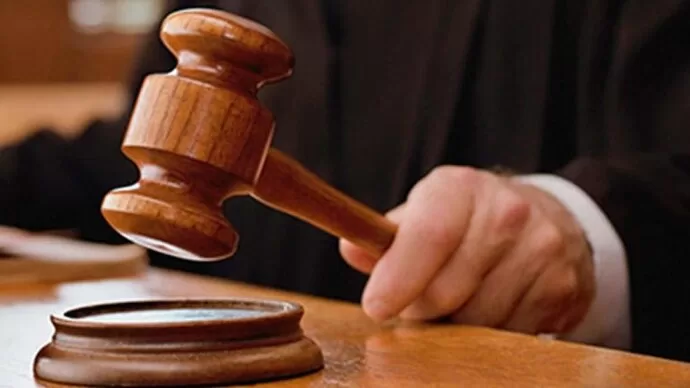
Criminal trials and applications, such as murder and/or rape, can last decades, and civil suits can last generations. Only smugglers, scammers, and bigwigs, politicians and bureaucrats, and those charged in major cases, shout their faith in the courts from the rooftops. A common man, however, who is always going after justice and being humiliated in the process, with justice eluding him even after decades, does not share this viewpoint. By not settling cases quickly, the court not only aids criminals and wrongdoers, but also legitimizes the illegalities being committed. Many undertrials continue to remain in jail despite grant of bail because of their inability to arrange surety bonds.
In 1985, Justice E.S. Venkatramiah of the Supreme Court granted bail to Lalit Mohan Thapar, a major industrialist, in a criminal case at night at his residence. It was challenged in Bihar Legal Support Society v. Chief Justice of India, 1987 SCR (1) 295, in which the petitioner contended that the Supreme Court gives priority to important people at the cost of poor people. The Supreme Court disposed of the petition saying that it shares society’s concern about the poor but it does not discriminate between the rich and the poor. It said that the mentioning process for urgent listing is in force and it cannot comment upon the administrative side of the judiciary. It said that the job is of the High court as it is normally the final arbiter.
This case made it realize that the Supreme Court is unhappy with the way but is not wanting to make some judicial reform to curb the rich-poor, urban-rural divide.
Another argument which is prevailing in recent times is that senior designated lawyers with the privileges be it the first in queue, length of arguments and other associated influence can be only afforded by rich people. Inherent problems of bribery, retirement perks/elevation of judges, public prosecutor turning to police prosecutor and many such, are difficult to even inspect.
Another instance where the granting of bail to Salman Khan by the Bombay High Court on 6 May 2015, barely three hours after he was sentenced to five years of rigorous imprisonment by the district court for culpable homicide in a hit and run case, and that too on an oral prayer as the copy of the judgment was not available, is an eloquent commentary on the might of the haves. In fact, the prayer was made after the normal working hour of the high court.
Similarly, S.L. Bhayana, additional district judge in Delhi, was elevated to the Delhi High Court and then made a permanent judge in 2007, though the Delhi High Court passed a severe stricture against him for acquitting the accused in the much publicized Jessica Lal murder case. The High Court went to the extent of recording that the judge was in a hurry to reach a particular conclusion.
In some other cases too, concerning VIPs, the court has given orders which defy logic and reason.
On 1 September 2009, the Bombay High Court directed the Maharashtra government to pay Rs 1 lakh as compensation to Bapu Pandu Mali, a 40-year-old man, who languished in prison for over 10 years for a crime he never committed. He was in jail for five years as an under trial prisoner battling against rape and murder charges. being acquitted by the trial court, the poor Mali remained incarcerated for five years longer as he was not able to pay the bail amount when his case went into appeal. A division bench of Bilal Nazki and A.R. Joshi, JJ, lamented, ‘This is a sorry state of affairs in which not only the prosecuting agency but also the Courts are involved. This is a reflection on our own system, which needs to be corrected.’
In the case of Nanu Gordhan v State of Gujarat, the judge held that asking a poor man to furnish an excessive bail amount is as good as refusing bail to him.
A well explained in a journal written by Arvind Pennathur about the domino effect wherein a poor sole bread-earner of the family is kept behind the bars for particular surety or bail amount will lead to his family members getting involved into crimes for its fulfillment.
To conclude, it is very subjective. Societal factors do vary and impact on bail pleas, for example, a defense of grave and sudden provocation. So do with economic status of the applicant and the opposite side.